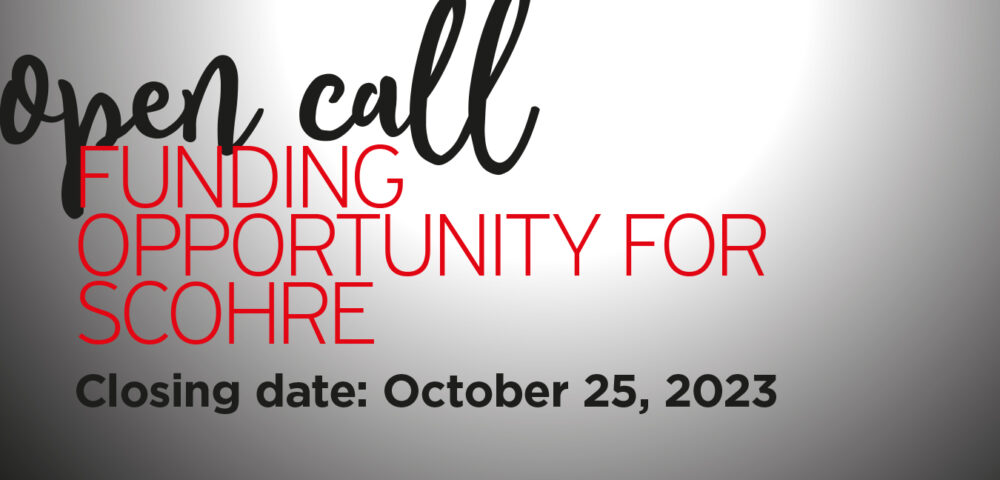
A funding opportunity for SCOHRE: Open Call for COST Actions
A funding opportunity for SCOHRE: Open Call for COST Actions
We are pleased to share with all interested entities this opportunity to finance SCOHRE activities and help fulfil the Association’s purposes through COST. We consider that SCOHRE is a great candidate project for this funding opportunity having already checked that our network fulfils the eligibility criteria.
In brief, COST (European Cooperation in Science and Technology) funds interdisciplinary research networks that bring together researchers, innovators and other professionals, who are based in Europe and beyond, to collaborate on research topics for a period of 4 years. The funding from COST covers the expenses of networking activities rather than research and, as such, it can be used to organize webinars, conferences, networking events, working group meetings, training and exchange opportunities, and to support dissemination events/actions.
COST is of great interest to the Association as it funds research networks based in Europe and beyond, and any individual affiliated to a legal entity, in any country in the world, may become a working group member.
Our aim is to submit a proposal for this year’s Open Call, which closes on 25 October 2023.
As part of the Technical Annex that will be prepared for submitting the proposal, the research objectives of SCOHRE for the next 4 years and how these will be achieved need to be described in detail.
SCOHRE BoD drafted a list of “Research Coordination Objectives” and “Capacity-building Objectives” for 2023-2027 in line with COST call guidelines; now, we need feedback or any further suggestions from all interested in SCOHRE activities!
Note that for this proposal, it is important to incorporate existing research projects -ongoing or planned for the imminent future- that are relevant to the aims and vision of SCOHRE. This way, COST members will be able, through COST, to disseminate the results of their work across the research community and relevant stakeholders, as well as serve the common goals of SCOHRE.
Here are some of the Objectives for the period 2023-2027 mentioned above:
Research Coordination Objectives
- Expand the network and its geographical diversity from 22 members from 18 countries to at least 36 members from 30 countries.
- Identify the gaps in data and knowledge required for making evidence-based recommendations for including alternative tobacco and nicotine products in smoking control policies.
- Coordinate the development of the required methodologies for collating and harmonising existing data and for collecting future data in a consistent manner.
- Coordinate the identification, collection, and harmonisation of existing data on smoking habits in Europe.
- Coordinate the design and implementation of epidemiological surveys for monitoring the smoking habits of the population.
- Coordinate the mapping of existing policies on smoking control, including harm reduction, in Europe and beyond.
- Coordinate the use of all relevant data and evidence in order to make recommendations on smoking control policies.
- Coordinate the dissemination and communication of findings and policy recommendations, including exploring developing a database-observatory.
Capacity-building Objectives
- Build a multidisciplinary and multi-country network and bring together experts from different scientific fields, representing different types of organizations.
- Create a joint research agenda for addressing the persisting public health issue of smoking through the incorporation of harm reduction products.
- Conduct systematic reviews to explore the impact of using alternative tobacco and nicotine products on health and indicate the research that is still required for drawing safe conclusions on the safety of these products.
- Disseminate findings to the audiences of interest and create more opportunities for education through webinars, conferences and peer-reviewed papers.
- Develop and implement a comprehensive methodology and relevant protocols for harmonising existing data on the smoking habits of the population.
- Develop and implement a comprehensive methodology for collecting new data on the smoking habits of the population consistently across countries and over time.
- Review existing smoking control policies in countries around the world, further identifying success stories, failed efforts, potential barriers and lessons learned.
- Develop evidence-based public health measures and legal framework for regulating smoking, including harm reduction options to minimise the health effects of smoking.

